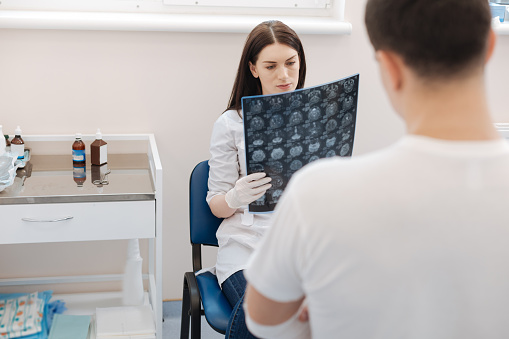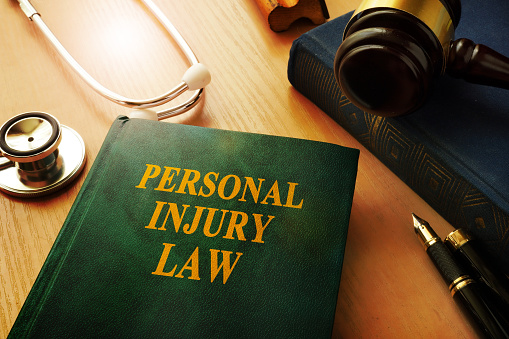
by Charlie Smith | Jan 20, 2018 | Blog, Personal Injury, Personal Injury Lawyer |
While home insurance policies will cover some personal injury claims, they don’t cover everything. Furthermore, the coverage that they do provide for personal injuries is limited to a certain amount, such as $100,000. Typically, a home insurance policy would kick in to pay for the personal injuries of another for which a member of that household was legally liable. The injury doesn’t necessarily have to occur on the property to be covered either. The existence of a homeowner’s insurance policy can affect a personal injury claim on both ends, whether you’re the plaintiff (the injured party) or the defendant. Understanding Home Insurance Liability Protection Home insurance liability coverage usually has two components: personal liability and medical payments. The personal liability portion pays for claims or lawsuits that are against you, and that stem from accidents (that you or a member of your household caused) on or away from your property, causing bodily injury to others. Personal liability will also cover property damage from such accidents. Liability coverage will pay for legal representation for you if you are sued by the injured party. Keep in mind, though, that this coverage does not apply to injuries caused by intentional acts, auto-related accidents, or business-related incidents. Depending on your policy, personal liability will typically provide at least $100,000 of coverage per incident. With most policies, no deductible is associated with personal liability claims. Medical payments coverage will cover the medical expenses of parties accidentally injured on the covered property, no matter whose fault it is, up to the policy limit. However, medical payments coverage does not pay for personal injuries to members of the household, nor...

by Charlie Smith | Jan 5, 2018 | Blog, Personal Injury Lawyer |
The moments following a serious accident are shrouded in panic. Whether you’re the victim or you simply witnessed a crime, you can easily forget how to respond in an emergency. However, the moments following an accident are often pivotal to the outcome of cases that are settled or go to court. This point is especially true in events involving serious damage to the brain. Symptoms of such harm may not manifest themselves for weeks, and individuals who fail to collect evidence or check in with a doctor may have trouble retroactively remembering these details and pursuing a personal injury claim. If you experience a blow to the head — whether as the victim or as a witness — follow the steps below in order to successfully pursue a traumatic brain injury (TBI) case. Record Details, Including Witness Contact Info Following an accident that causes injury, regardless of whether the damage was done deliberately, record as much information as possible about what happened. Take notes if you can. As you begin to document the event, keep the following details in mind: What happened: Document the nature of the event, such as a sports collision, a car crash, or a slip and fall. List all parties involved: You need the name of the victim and the person who inflicted the damage. Also get contact information from any witnesses who could confirm what happened. The victim’s symptoms: Physical symptoms of a TBI include loss of consciousness or a state of confusion or disorientation, headaches, and vomiting. Sensory problems and cognitive signs may also be present. Record details of these symptoms and any...

by admin | Dec 9, 2017 | Automobile Accident, Personal Injury, Tips |
When winter arrives, many people visit the rest of Florida for warm weather and fun attractions. With several theme parks in the state, visitors come for the great fishing or relaxing on the beach. These visitors are snowbirds, travelers from colder climates. Unfortunately, they often cause increased traffic and raise drivers’ risks of accidents. Snowbirds may not be familiar with local traffic laws, and they’re more likely to be tired from a long drive or distracted because they’re not sure where they should go. Explore the following helpful tips for avoiding accidents with snowbirds. Don’t Exceed the Speed Limit Breaking the posted speed limit increases your fuel consumption and raises the risks for you, your passengers, and other drivers. Since people have less reaction time when they drive fast, they often have trouble braking and avoiding obstacles and other cars on the road. Always drive cautiously to prevent accidents. Instead of speeding, make sure you start with plenty of time to reach your destination and leave at least a few extra minutes for traffic. Be especially cautious after dark because headlights can only help you to see several feet in front of your car. Be Calm and Courteous If you become nervous, angry, or frustrated while driving, you could make a mistake and cause an accident. If you get stuck in traffic, relax and listen to some music or talk to your passengers while you wait and focus on driving safely. Avoid tailgating so that you have plenty of room to brake and prevent accidents. Be courteous, treat other drivers with respect, and make sure you report any suspicious...

by admin | Oct 22, 2017 | Blog, Personal Injury Lawyer |
Whether they think their case is simple or they’re trying to save money, some accident victims will try to handle their personal injury claim on their own. While their reasoning seems to make sense at first, they quickly realize the complexities of personal injury claims can get them in over their heads. Read below to discover why you shouldn’t file a personal injury claim by yourself. Preparing a Claim is Time Consuming When you represent yourself, you’re the one responsible for gathering all the evidence you need to support your case. This can include witness statements, police reports, repair estimates, photographs, medical records, and more. If you have a full-time job or family to take care of, you might begin to realize you just don’t have enough hours in the day to do all this work on your own. However, when you hire an attorney, you have someone who has the time and experience to gather the evidence you need. You Could Get a Low Offer Some insurance companies and defendants think that if you don’t have an advocate fighting on your behalf, you’ll likely get exhausted and frustrated with the system. They’ll present you with a low offer anticipating that you’ll just accept anything in the hopes of getting it over with, even if the offer doesn’t adequately compensate you for your injuries. Often, simply having a personal injury attorney will automatically get you a higher initial offer. You Need Good Negotiation Skills There will likely be several back-and-forth exchanges with the defendant’s insurance company during the settlement process. While some people are good at negotiating and don’t...

by Charlie Smith | Jul 11, 2017 | Amusement Park Injuries, Blog, Personal Injury |
Personal injury cases happen to everyone, including celebrities. Though the parties involved can be tight-lipped about the legal proceedings themselves, news sources still manage to dig up interesting information about these cases. From falling through trapdoors to getting hit with falling backdrops, celebrities and those close to them have suffered some serious injuries in the pursuit of fame. Adrian Bailey vs. Disney In 2008, a cast member of the Broadway performance of “The Little Mermaid” fell through a trapdoor. Adrian Bailey, the injured party, broke his back, pelvis, sternum, wrists, and foot. He said that there weren’t warnings about the trapdoor, which could have prevented him falling through. Lawyers filed several lawsuits, including one against Nicson, the manufacturer of the automated trapdoor, and one against Disney. Nicson was found not liable because “human error” and not a design defect was the reason the trapdoor was open. Brett Michaels vs. CBS In 2011, Brett Michaels, lead singer of the band Poison, sued CBS and the Tony Awards for an injury he sustained during a show in 2009. During the Tony Awards that year, he was exiting the stage at Radio City Music Hall, and a backdrop came down on his head. Michaels ended up with three stitches in his lip and a broken nose. He said that, though he asked for details on how to exit the stage, he didn’t have the right information, which is why the backdrop came down on him. In 2010, Michaels had a brain hemorrhage and felt the 2009 injury was part of the cause. Neither party in the lawsuit would give details about the...








Recent Comments